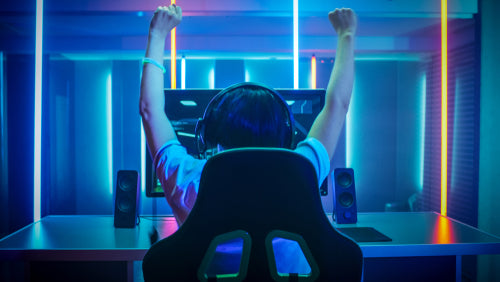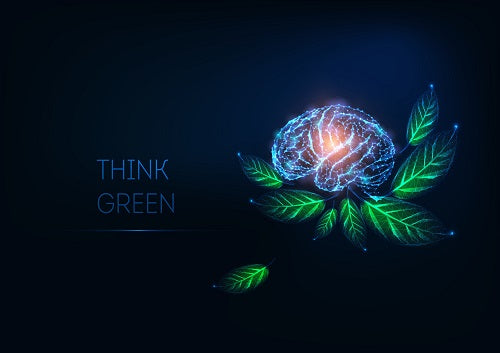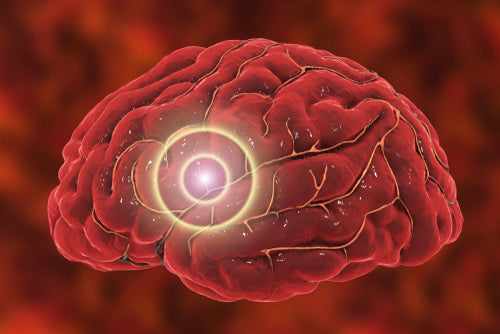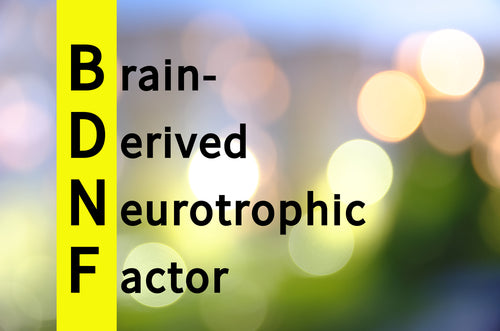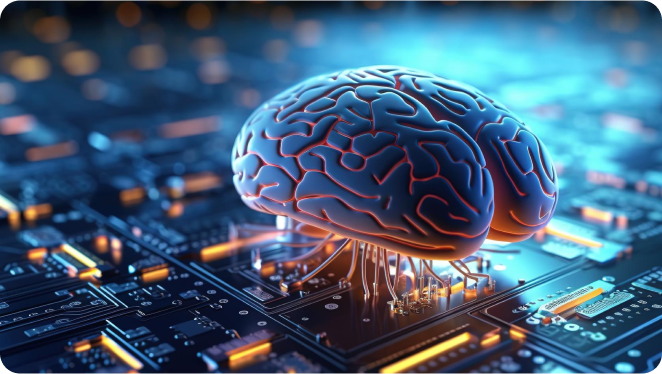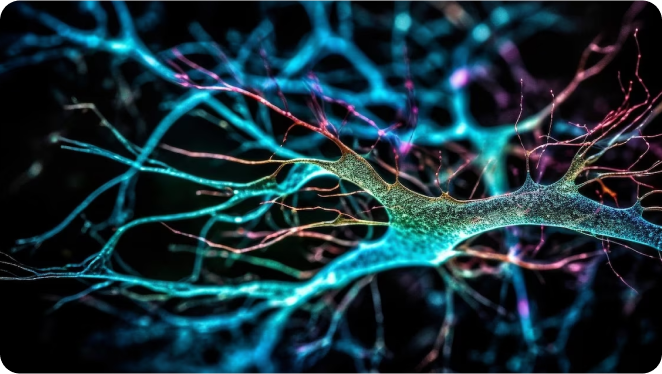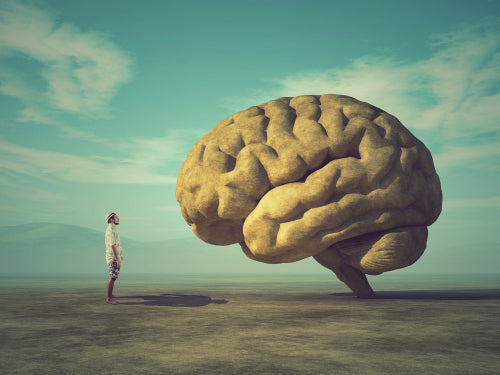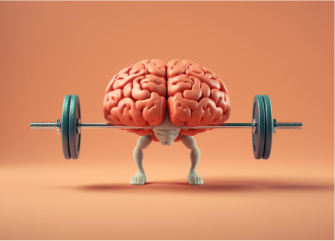
Creativity is often seen as a mysterious quality, something which can't be easily explained or quantified. However, with the advent of modern neuroscience, researchers are now able to uncover the science behind creativity and separate fact from fiction. In this blog post, we will be exploring the latest research into the neuroscience of creativity, and discussing the role of nootropics and other brain supplements in boosting creativity. Dr. Scott Barry Kaufman, a leading researcher in the field of creativity, has recently discussed the real neuroscience of creativity, and we will be exploring his findings and theories in this blog post.
The Misconceptions Surrounding Creativity
Creativity is often surrounded by misconceptions that prevent us from fully understanding its nature. One common misconception is the belief that creativity is an inherent talent, that some individuals are born with and others are not. However, research has shown that creativity is not limited to a select few. It is a skill that can be developed and nurtured through various techniques and practices.
Another misconception is the notion that creativity is solely a product of spontaneous inspiration. While moments of sudden insight can certainly occur, creativity also involves a lot of hard work, perseverance, and practice. It requires a combination of logical thinking, imagination, and the ability to connect seemingly unrelated ideas.
Contrary to popular belief, there is no "limitless pill" or magic supplement that can instantly enhance creativity. While certain nootropics and brain supplements may improve cognitive function, they are not a substitute for the hard work and dedication required to cultivate creativity.
By debunking these misconceptions, we can gain a deeper understanding of the true nature of creativity and empower ourselves to unlock our full creative potential.
The Neuroscience of Creativity: Understanding the Brain's Role

Understanding the neuroscience of creativity requires a deeper look into the brain and its role in the creative process. Neuroscientists have discovered that creativity involves multiple regions of the brain working together, rather than being limited to a single area. The prefrontal cortex, which is responsible for cognitive control and problem-solving, plays a crucial role in creativity. It helps us generate new ideas, make connections between seemingly unrelated concepts, and evaluate the value of those ideas.
Additionally, neurotransmitters such as dopamine and serotonin have been found to influence creative thinking. These chemicals help regulate mood and motivation, which are important factors in creative expression. By understanding the brain's role in creativity, we can begin to explore ways to enhance it through various methods such as cognitive exercises, meditation, and even certain nootropics or brain supplements that support mental clarity, focus, and cognitive function.
However, it is important to note that there is no "real limitless drug" or magic pill that instantly unlocks creative potential. While some brain supplements like adrafinil or certain brain vitamins may support cognitive function, they should be seen as a complementary tool rather than a substitute for the hard work, dedication, and creative practices necessary for cultivating a creative mindset.
The Dual Nature of Creativity: Combining Logic and Imagination

Creativity is often thought of as a purely imaginative process, where ideas and concepts are generated out of thin air. However, the reality is that creativity also relies heavily on logic and rational thinking. It is the combination of these two seemingly opposing forces that leads to truly innovative and creative ideas.
Logic provides the framework and structure for creativity to flourish. It helps to organize thoughts, identify patterns, and evaluate the feasibility and practicality of ideas. Without logic, creativity can easily become chaotic and lack direction.
Imagination, on the other hand, is the fuel that ignites creativity. It allows us to think outside the box, make unconventional connections, and explore new possibilities. Imagination enables us to envision new worlds, concepts, and solutions that have never been seen before.
By merging logic and imagination, we can achieve a balance that harnesses the power of both. This dual nature of creativity allows us to not only dream big and explore new ideas but also to ground those ideas in reality and make them actionable.
While nootropics and brain supplements like NZT-48 are often used as "mental clarity supplements" or "focus supplements," they should not be seen as a shortcut to creativity. They may support cognitive function and help with focus and mental clarity, but true creativity is a multidimensional process that goes beyond the influence of supplements alone.
In the next section, we will explore the importance of both divergent and convergent thinking in creative expression, further highlighting the complex nature of creativity.
The Importance of Both Divergent and Convergent Thinking in Creative Expression

Creative expression involves both divergent and convergent thinking. Divergent thinking is the ability to generate a wide range of ideas and explore different possibilities. It encourages a free-flowing, non-linear thought process that allows for unique and original ideas to emerge. On the other hand, convergent thinking is the ability to narrow down ideas and find the best solutions to a problem. It involves logical reasoning, evaluation, and the ability to make connections and see patterns.
Both types of thinking are crucial in creative expression. Divergent thinking allows for the exploration of multiple options and promotes innovation. It helps us break free from traditional or conventional ideas and come up with fresh and unique concepts. Convergent thinking, on the other hand, helps us evaluate and refine our ideas, ensuring they are practical, effective, and well-executed.
While some brain supplements may support cognitive function, they cannot directly enhance divergent or convergent thinking. The ability to think divergently and convergently relies on cognitive skills and processes that go beyond the influence of supplements alone. However, by understanding the importance of both types of thinking in creative expression, we can adopt strategies and techniques to enhance our cognitive abilities and develop a more well-rounded creative mindset.
Cultivating a Creative Mindset: How Environment, Emotion, and Inspiration Play a Role

Cultivating a creative mindset requires a combination of factors, including the environment we surround ourselves in, our emotions, and the inspiration we seek. Our environment can greatly impact our creative thinking, as it shapes our daily experiences and influences the stimuli we encounter. A supportive and stimulating environment, such as an art studio or a nature-filled space, can encourage creativity to flourish.
Emotions also play a significant role in cultivating a creative mindset. Positive emotions, like joy and excitement, can enhance our creative thinking and problem-solving abilities. On the other hand, negative emotions, like stress or self-doubt, can hinder our creative potential. Managing our emotions and fostering a positive mindset is crucial for unlocking our creative abilities.
Furthermore, inspiration is essential in cultivating a creative mindset. Seeking inspiration from various sources, such as art, music, literature, or nature, can ignite our imagination and spark new ideas. Engaging in activities that stimulate our curiosity and expand our perspectives can also fuel creativity.
While brain supplements or nootropics may support cognitive function and mental clarity, cultivating a creative mindset requires a holistic approach that encompasses the environment, emotions, and inspiration. These factors, when combined, can help individuals unlock their full creative potential and nurture their creative abilities.
Applications of Creativity: How Understanding the Science Can Benefit Individuals

Understanding the science behind creativity can have a profound impact on industries and individuals alike.
On an individual level, understanding the science of creativity can empower individuals to tap into their full creative potential. By adopting techniques and practices that have been shown to enhance creative thinking, individuals can cultivate a more creative mindset and find new solutions to personal and professional challenges. Brain supplements may serve as a complementary tool in this process, supporting cognitive function and mental clarity as individuals work towards unlocking their creative abilities.
Overall, by embracing the real neuroscience of creativity and dispelling myths surrounding creative expression, industries and individuals can harness the power of creativity to drive innovation and personal growth.


















